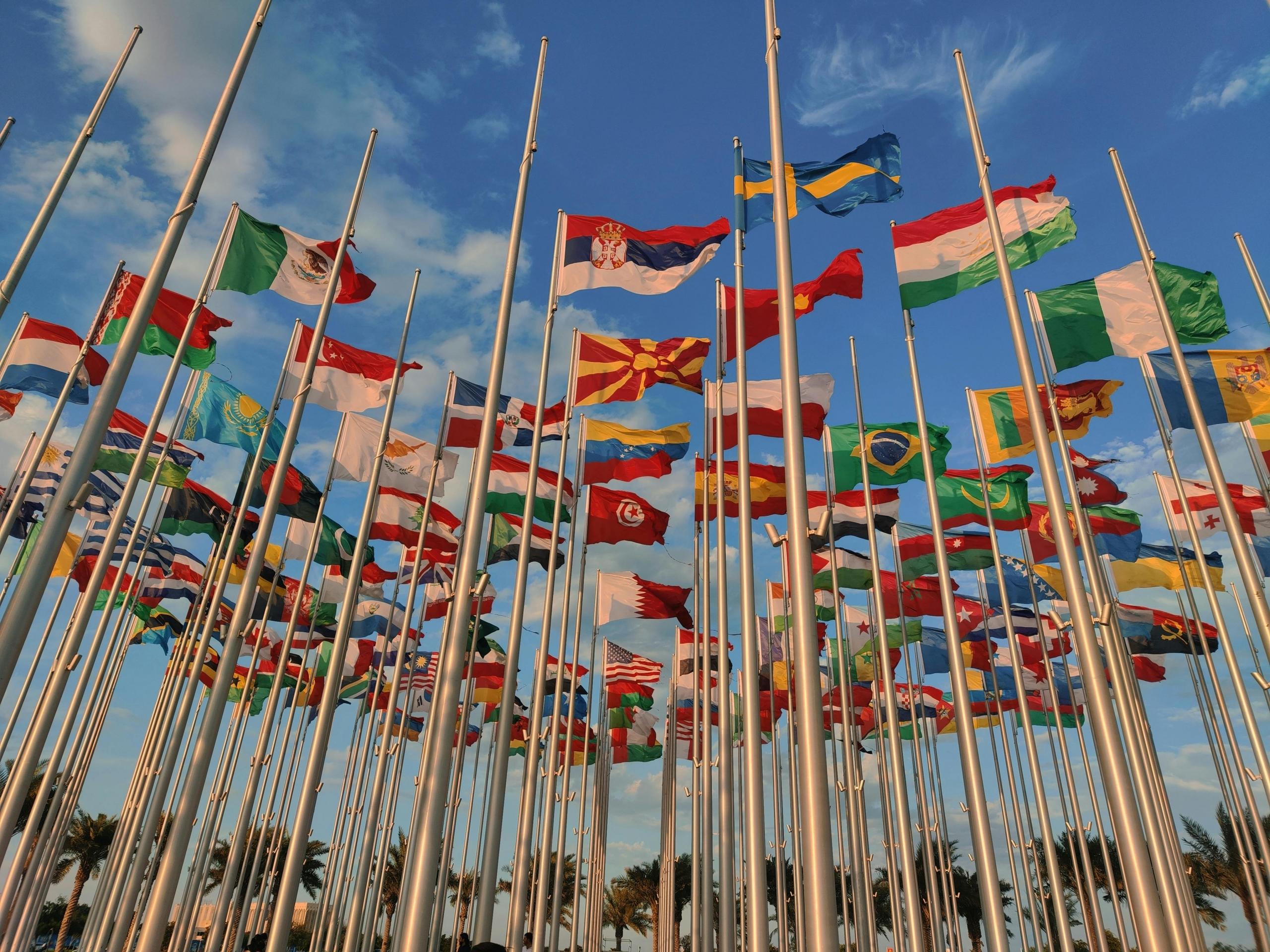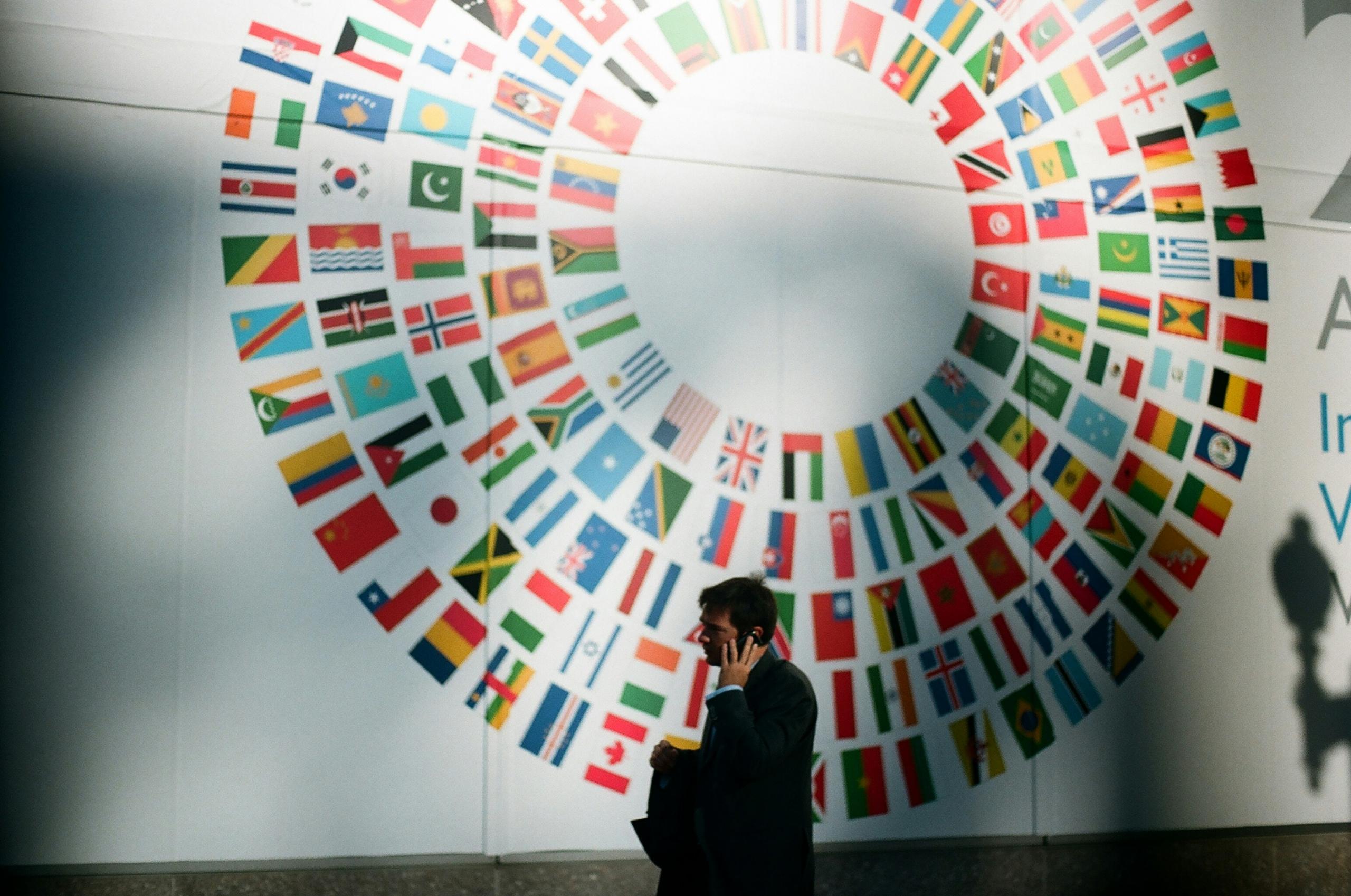In the world of global finance, two organisations hold significant sway: the International Monetary Fund (IMF) and the World Bank. But beyond their influential reputations, what exactly do they do?
Join us on an expedition as we uncover the involvement and functions of these international giants, shedding light on their impact on economies worldwide.
The Bretton Woods Conference, held over seven decades ago, laid the foundation for the establishment of the International Monetary Fund (IMF) and the World Bank. These institutions were created with the aim of promoting global economic stability, regulating international trade practices, and providing development funds for countries in need. Today, they continue to play a crucial role in shaping the global financial landscape.
Let's do a more in-depth dive into this interesting topic in economics.

Bretton Woods Conference: A Vision for Global Economic Cooperation
In the midst of World War II, delegates from 44 nations gathered at the Bretton Woods Conference in the United States. Their primary objective was to address the economic challenges that had plagued the world in the interwar period, including the Great Depression and trade wars. The conference aimed to establish a system of international trade and currency that would benefit all nations and prevent future economic crises.
Food for thought:
Looking at where the world is today in regards to various economic crises, it raises the question: Did they really achieve this or were there ulterior motives behind this seemingly helpful system?
The delegates agreed on the need for a unifying currency for international trade and the creation of agencies to regulate global trading practices. Out of this agreement, the IMF and the World Bank were born.
What is the IMF and the World Bank?
The International Monetary Fund (IMF) and the World Bank are two prominent international financial institutions that play a crucial role in the worldwide economy. Both organisations were created in the aftermath of World War II with the aim of promoting economic stability, sustainable growth, and poverty reduction worldwide.
While they have similar goals, their functions and areas of focus differ.
The IMF is an international organisation consisting of 190 member countries. Its primary objective is to ensure the stability of the international monetary system. The IMF achieves this by providing financial assistance to member countries facing balance of payments problems and by offering policy advice and technical assistance to help countries strengthen their economic frameworks. The IMF also conducts regular assessments of the global economy, known as Article IV consultations, which provide valuable insights into the economic performance and policies of member countries.
On the other hand, the World Bank is a group of five institutions that provide financial and technical assistance to developing countries for development projects. The main goal of the World Bank is to alleviate poverty and improve living standards in these countries. It provides loans and grants to fund projects in areas such as infrastructure expansion, education, healthcare, and agriculture. In addition to financial support, the World Bank also offers expertise and knowledge sharing to help countries implement effective policies and strategies for sustainable development.
Both the IMF and the World Bank are governed by their member countries through a system of voting power that is based on each country's economic strength. This ensures that decisions made by these institutions reflect the interests of the worldwide community as a whole. The IMF's decision-making body is the Board of Governors, composed of representatives from each member country. The World Bank's highest decision-making body is its Board of Governors, which comprises representatives from the member countries.

While both organisations have played a critical part in promoting global economic stability and development, they have faced criticism and controversy over the years. Some argue that the conditions attached to IMF loans can be too stringent and may exacerbate social inequality in recipient countries.
Others question the effectiveness of World Bank projects and argue that they sometimes benefit multinational corporations more than local communities.
The International Monetary Fund: Promoting Financial Stability
The IMF was established with the goal of promoting stability in financial transactions and exchange rates.
Its primary function is to provide loans to member countries experiencing balance of payments difficulties, helping them overcome financial crises.
Additionally, the IMF monitors global economic trends and provides policy advice to member countries to ensure sustainable economic growth.
Member countries contribute funds to the IMF based on their economic size, and the more capital a nation offers, the more voting power it holds. This system has been a subject of debate, as it gives more influence to wealthier nations and leaves low-income countries with limited representation.

The World Bank: Fostering Progress and Reconstruction
The World Bank, consisting of five different organisations, plays a vital role in fostering economic development and reconstruction. Two of its institutions, the International Bank for Reconstruction and Development (IBRD) and the International Development Association (IDA), provide funds for infrastructure projects and poverty reduction initiatives in developing countries.
The IBRD offers loans to middle-income and creditworthy low-income countries, while the IDA provides grants and concessional loans to the world's poorest nations.
The World Bank also focuses on issues such as climate change, gender equality, and social development, aiming to address the multidimensional challenges faced by its member countries.
Challenges to the Global Reserve Currency System
The US dollar has served as the global reserve currency since the Bretton Woods Conference, with other nations pegging their currencies to its value. However, recent events have raised doubts about the future of the USD-driven global economy. In 1971, US President Nixon abandoned the gold standard, making the US dollar a fiat currency.
The question of what gives a currency its value has become increasingly important, especially in the wake of the 2008 financial crisis. Bank failures and economic instability have highlighted the need for a more robust and equitable global financial system.
The Rise of BRICS: A Challenge to the Status Quo
In recent years, the BRICS alliance, consisting of Brazil, Russia, India, China, and South Africa, has emerged as a potential challenger to the IMF and World Bank. These countries, representing a significant portion of the global economy, have expressed their dissatisfaction with the existing global governance institutions and their desire for greater representation and influence.
In 2014, the BRICS established their own development bank, known as the New Development Bank (NDB). The NDB aims to fund infrastructure and development projects in the global South, providing an alternative to the traditional lending practices of the World Bank. Additionally, the BRICS countries have been exploring the use of blockchain technology and the development of a digital currency for international trade.
The Future of Global Finance and Economy

The emergence of the BRICS alliance and their efforts to create alternative financial institutions and systems raise important questions about the future of global finance and the role of the IMF and World Bank. While the BRICS may not seek to dominate world markets with their currencies, their initiatives reflect a desire for a more impartial and balanced global trading system.
A future global reserve currency might be one that eliminates the need for a single dominant currency by tying its value to the global GDP. This would ensure that poorer nations are not disadvantaged due to a lack of reserve currency holdings. Furthermore, a more flexible and inclusive approach to lending and development assistance, similar to that of the BRICS, could provide countries with greater agency in shaping their own economic policies and priorities.
A Path Towards Equitable Global Economic Governance
The IMF and World Bank have played a significant role in promoting global economic stability and fostering development. However, the challenges and criticisms they face highlight the need for ongoing reform and adaptation to meet the changing dynamics of the global economy.
The rise of the alliance of BRICS countries and their efforts to create alternative institutions and systems demonstrate a desire for a more inclusive and balanced global financial order. As the world continues to evolve, it is essential for global governance institutions to prioritise representation, equity, and sustainability in their decision-making processes.
By embracing new technologies, fostering cooperation among nations, and ensuring that the voices of all countries, regardless of their economic size, are heard, the international community can work towards a more equitable and prosperous future for all. The journey towards a truly balanced and representative global economic governance system may be challenging, but it is a path worth pursuing.















